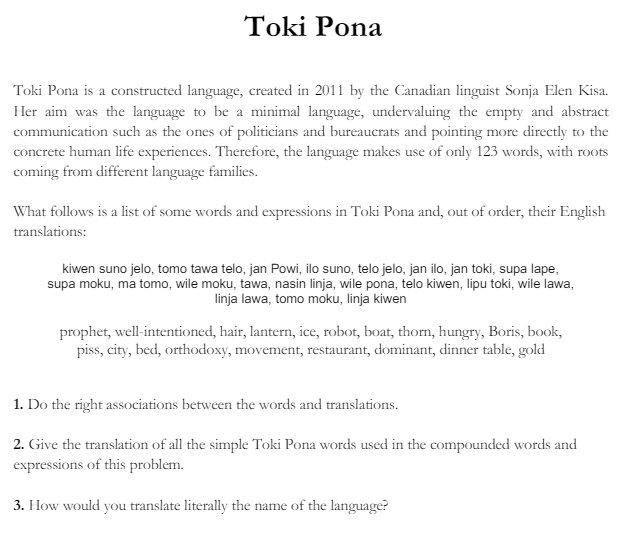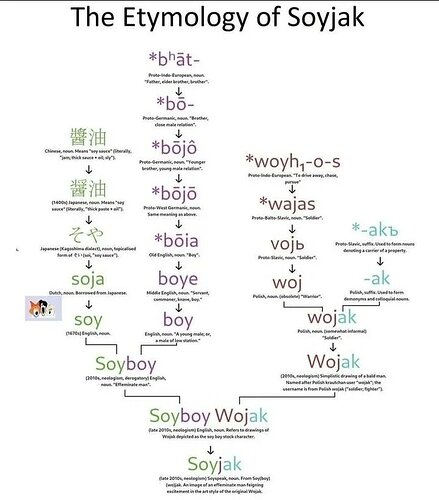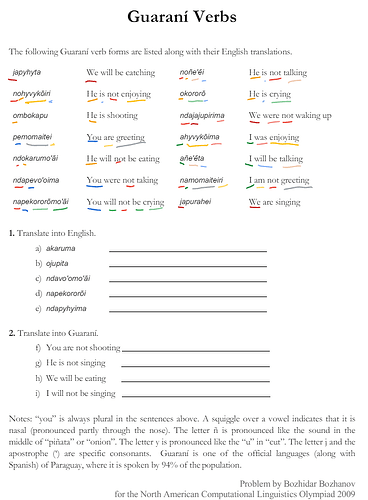Yeah I solved the first part using Huber's link.
Not sure I want to solve the second part now.
I'm not even sure how to solve the part 2 picture.
Is it two big and three small or three small and two big?
Or does it matter?
it doesn't matter, except that you use the right modifier on the second type
answer:
Summary
paya hach'a challwa, kimsa challwallampiwa, challwataxa
Ah, that makes sense.
I will keep trying with that advice.
By the way, (not a spoiler)
Summary
I just assumed the liar was going to lie about getting more big fish, or bigger fish.
That's what fishermen do.
OK I'm not treating the Fish problem as closed, those of us who aren't spoiled are going to solve Huber's corrected version and post the solutions here as if we solved the original problem. Then when I check the answers I assume they will match those for the corrected problem
When I searched for that version, I found the answers version first so count me out of that one
Alright I am posting the last problem, Icelandic Kinship and Guarani Verbs are still open but we are losing a little steam on the hard problems so don't want to leave any rock unturned
Linguistics Olympiad: Final Problem
Aymara solution I think.
Summary
- g one big
- b three big Lie
- a one medium one large
- c one big three small
- d two small
- f one small and two medium
- e three medium and two small
Paya hach'a challwa kimsa challwallampiwa challwataxa
or
Kimsa challwalla paya hach'a challwampiwa challwataxa
Toki Pona thoughts.
I won't put this in a spoiler because we might need to help each other.
With only 123 words, it must use combinations of words to make an English word.
For instance, the French word for potato is "apple of the earth."
Or the German word for bat is "flying mouse."
Possibilities:
Gold = yellow metal
Piss = yellow water
Ice = frozen water
Boat = ? water
Other ones that have something in common:
Hungry, restaurant, dinner table.
Also, Powi and Boris are the only capitalized words.
■■■ can you check Krazy's solution to Aymara?
I'll look at Toki Pona today - I had a similar assumption, they have to use compounds to create more complex words from simple meanings
Also noticed the capitalization which is a good place to start
In the UK they say "soya". Bunch of losers.
Not sure how to proceed with this one.
Will try tomorrow.
Since the language uses roots of real existing languages, that one is for the real turbo nerds. It might expect you to know the roots of enough languages.
It also has a syllable structure of:
Vowel + Consonant
Vowel + /n/
Consonant + Vowel + /n/
Or something close to it. This means some of the sounds in the words may be to satisfy these phonological rules, and not a part of the root from the source language.


